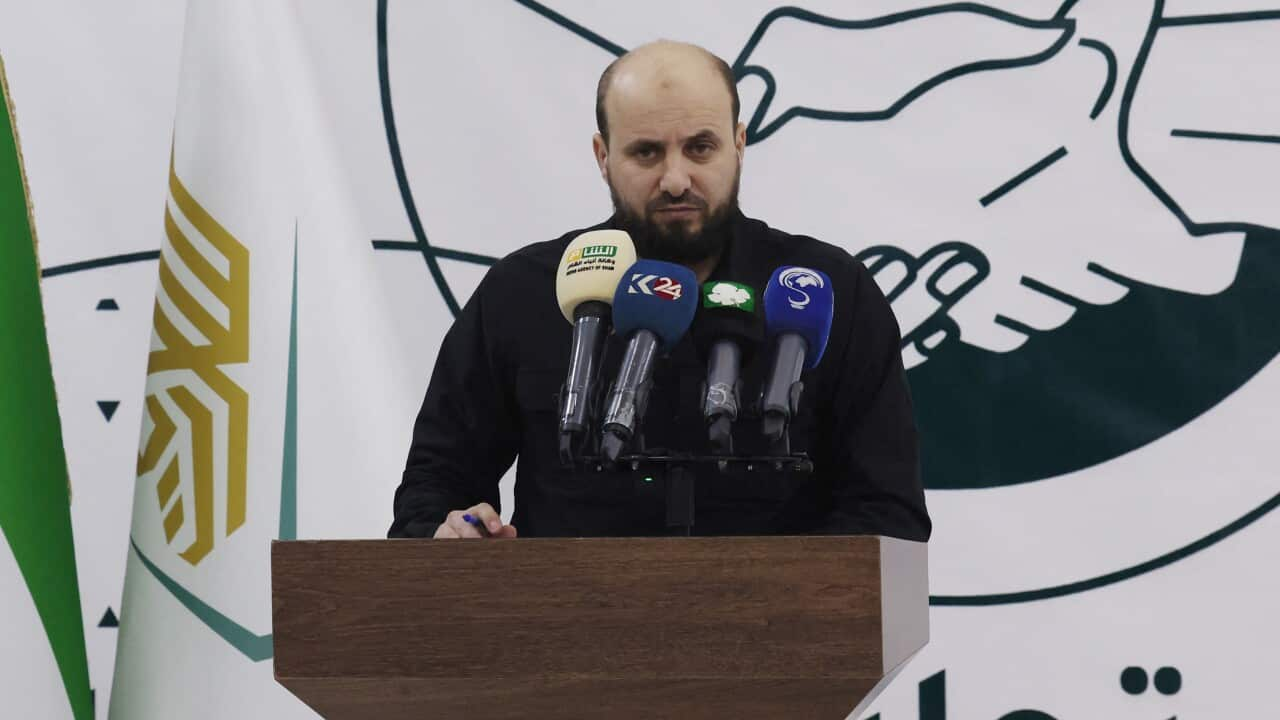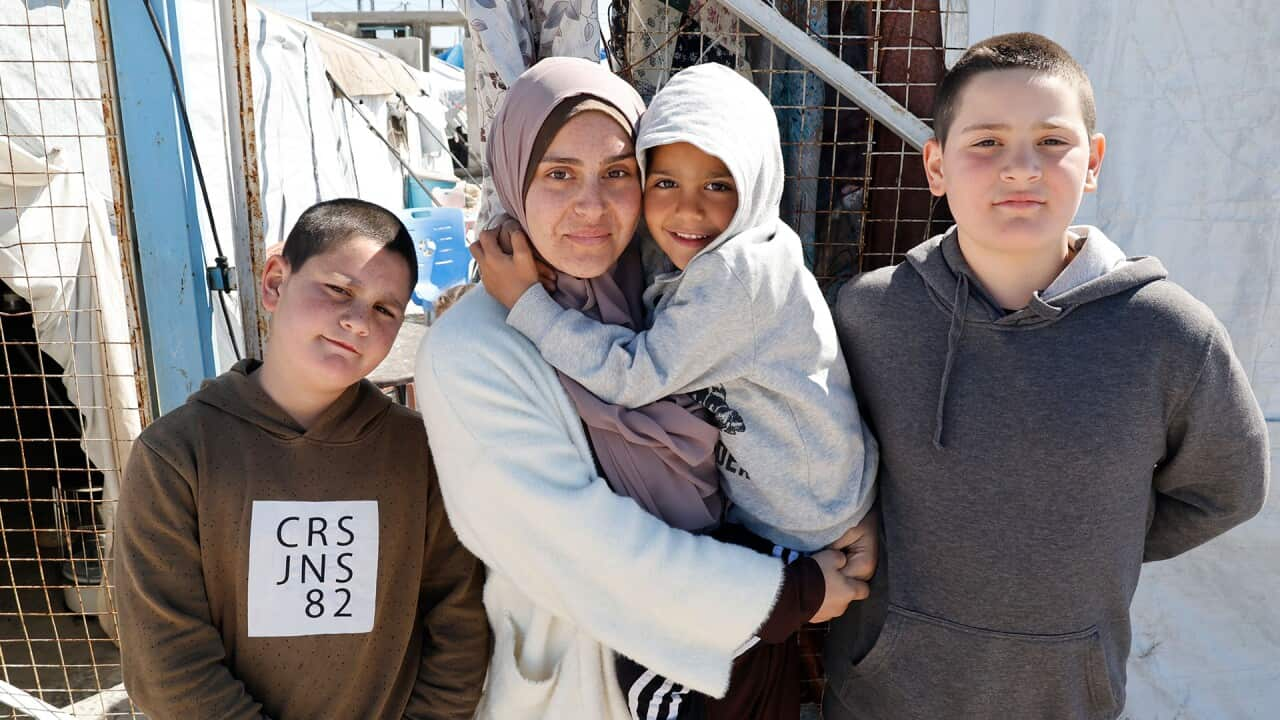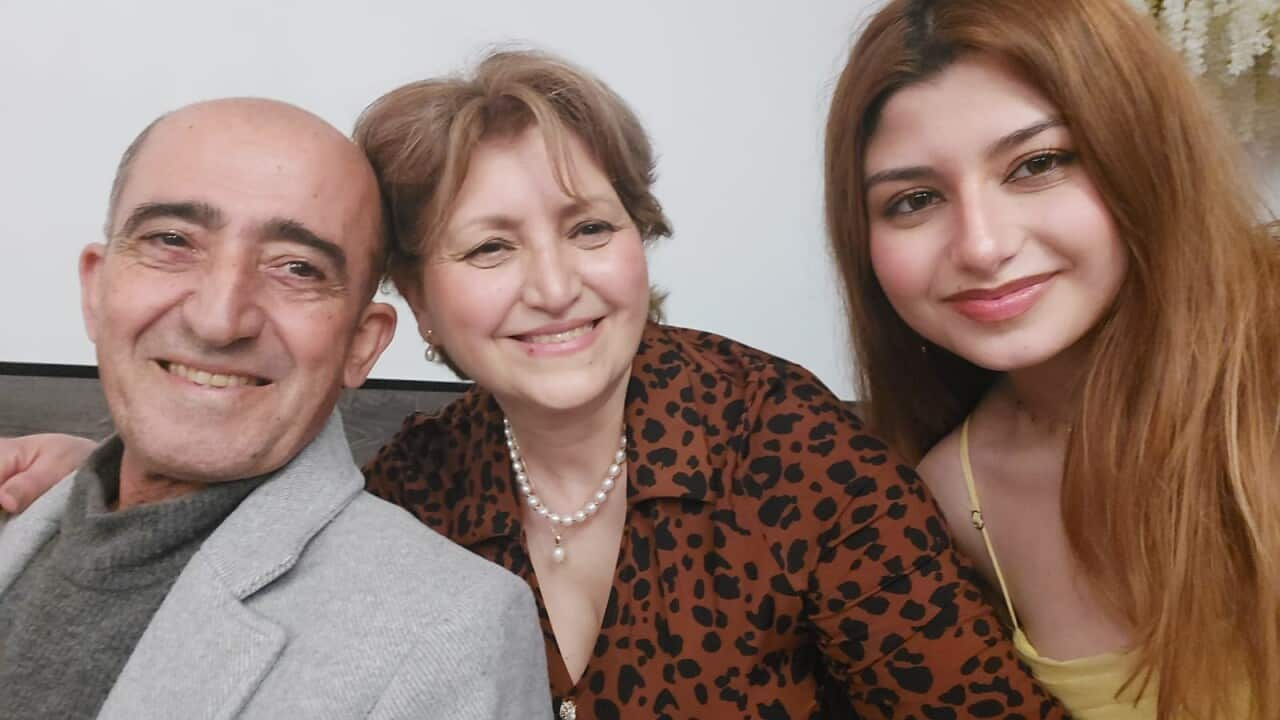Key Points
- Mohammed al-Bashir will lead Syria's caretaker government until March next year, he has announced.
- Banks and shops have reopened in Damascus for the first time since former president Bashar al-Assad was overthrown.
- Israel's military has hit Syrian army bases as its defence minister ordered a "sterile defensive zone" be created.
Syria's new caretaker prime minister has announced he is taking charge of the country with the backing of the rebels who toppled former president Bashar al-Assad three days ago.
Assad fled to Russia following his removal after a 13-year civil war and more than five decades of autocratic Assad family rule.
In a brief address on state television on Tuesday (local time), Mohammed al-Bashir, a figure little known across most of Syria who previously ran an administration in a pocket of the north-west controlled by rebels, said he would lead the interim authority until 1 March.
"Today we held a cabinet meeting that included a team from the Salvation government that was working in Idlib and its vicinity, and the government of the ousted regime," he said in a brief address on state television on Tuesday (local time).
"The meeting was under the headline of transferring the files and institutions to caretake the government."
Syria's new interim leader has little political profile beyond Idlib province, a mainly rural north-west region where rebels had maintained an administration during the long years that Syria's civil war front lines were frozen.
A Facebook page of the rebel administration says he was trained as an electrical engineer, later received a degree in sharia and law, and had held posts in areas including education.
Damascus reopens
In the Syrian capital of Damascus, banks reopened for the first time since Assad was overthrown. Shops were also opening up again, traffic returned to the roads, and cleaners were out sweeping the streets.
There was a notable decrease in the number of armed men on the streets. Two sources close to the rebels said their command had ordered fighters to withdraw from cities and for police and internal security forces affiliated with the main rebel group Hayat Tahrir al-Shams (HTS) to deploy there.
United States secretary of state Antony Blinken said the US fully supports Syria's political transition process and wants it to lead to inclusive and non-sectarian governance.
In a sign that foreigners are ready to work with HTS, the former al-Qaeda affiliate that led the anti-Assad revolt and has lately distanced itself from its jihadist roots, the United Nations envoy to Syria played down its designation as a terrorist organisation.
"The reality is so far that HTS and also the other armed groups have been sending good messages to the Syrian people ... of unity, of inclusiveness," UN envoy to Syria Geir Pedersen told a briefing in Geneva.
Israel says airstrikes target military stockpiles
Israel aims to impose a "sterile defence zone" in southern Syria that would be enforced without a permanent troop presence, as the military says a wave of airstrikes had destroyed the bulk of Syria's strategic weapons stockpiles.
Over the past 48 hours, following the collapse of Assad's government, the military said jets had conducted more than 350 strikes on targets, including anti-aircraft batteries, military airfields, weapons production sites, combat aircraft and missiles.
In addition, missile vessels struck the Syrian naval facilities of Al-Bayda port and Latakia port, where 15 Syrian naval vessels were docked.
Israeli officials said the strikes across Syria were aimed at destroying strategic weapons and military infrastructure to prevent them from being used by rebel groups that drove Assad from power, some of which grew from movements linked to al-Qaeda and Islamic State.
"We have no intention of interfering in Syria's internal affairs, but we clearly intend to do what is necessary to ensure our security," Prime Minister Benjamin Netanyahu said.
"I authorised the air force to bomb strategic military capabilities left by the Syrian army, so that they would not fall into the hands of the jihadists."

Parts of Bashar al-Assad's palace were ransacked in recent days as rebel forces in Syria seized the capital from the longtime ruler, who fled the country to Russia. Source: Getty / Ali Haj Suleiman
A military spokesperson said Israeli troops remained in the buffer zone as well as "a few additional points" in the vicinity.
But he denied that forces had penetrated Syrian territory significantly beyond the area, after a Syrian source said they had reached the town of Qatana, several kilometres to the east of the zone and just a short drive from Damascus airport.
Israel, which has just agreed to a ceasefire in Lebanon following weeks of fighting the Iranian-backed Hezbollah movement, calls the incursion into Syrian territory a limited and temporary measure to ensure border security.




